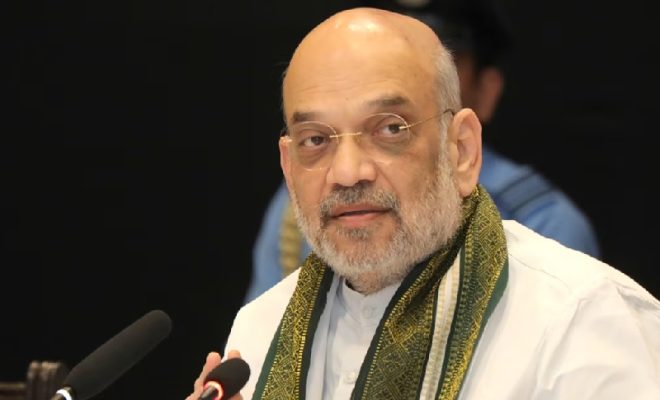What Lies Behind Amit Shah’s Analysis of INDIA Bloc’s Electoral Bond Stand?

In the arena of Indian politics, every move is seasoned with intrigue, controversy, and power play. In this riveting spectacle, Union Home Minister Amit Shah recently took center stage, unleashing a fiery critique of the INDIA bloc’s stance on electoral bonds. The turns of Shah’s assertions and the broader implications for the Indian political landscape are notable for the upcoming 18th Loksabha election 2024!
Amit Shah, the Union Home Minister of India, recently made waves with his critique of the INDIA Bloc’s stance on electoral bonds. But what prompted Shah’s analysis, and what are the underlying factors at play?
Union Home Minister Amit Shah criticized the INDIA bloc’s opposition to electoral bonds, alleging their preference for the revival of black money in politics. Let’s delve into Shah’s arguments and the broader implications of the Supreme Court’s decision to strike down electoral bonds.
Shah’s Assertion: Electoral Bonds and Black Money
Shah expressed his belief that electoral bonds had significantly curbed the influence of black money in politics. He argued that the bonds streamlined the donation process, promoting transparency and accountability within political funding. However, the INDIA bloc, led by Rahul Gandhi, opposed this system, suggesting a preference for the traditional method of cash donations, which often led to undisclosed funds lining the pockets of party leaders.
Contrary to accusations of amassing undisclosed funds, Shah emphasized the Bharatiya Janata Party’s (BJP) commitment to transparency. He highlighted a significant decline in cash donations to the party, attributing it to the adoption of electoral bonds. Shah underscored that the BJP’s use of bonds was consistent with its aim of fostering transparency in political financing.
Counterarguments and Call for Clarity
Addressing Rahul Gandhi’s characterization of electoral bonds as ‘hafta vasooli’ (extortion), Shah challenged him to provide evidence for his claims. He questioned Gandhi’s alleged receipt of Rs 1,600 crore, urging him to clarify the source of these funds. Shah dismissed accusations of undue influence on government policies, citing the BJP’s utilization of electoral bonds during periods of electoral constraints.
Also Read | Complete Schedule: 18th Lok Sabha Election Dates by City
Supreme Court’s Verdict and Constitutional Implications
On February 15, 2024, the Supreme Court of India deemed the electoral bond scheme unconstitutional, citing violations of the right to information and potential coercion of donors. The court’s decision raised concerns about the secrecy surrounding political funding and its impact on democratic processes.
Amit Shah’s critique of the INDIA bloc’s stance on electoral bonds underscores the contentious nature of political financing in India. While Shah advocates for transparency and accountability, his opponents raise valid concerns about the influence of undisclosed donations on democratic institutions. As the debate continues, it remains imperative to uphold the principles of transparency and integrity in electoral processes.



